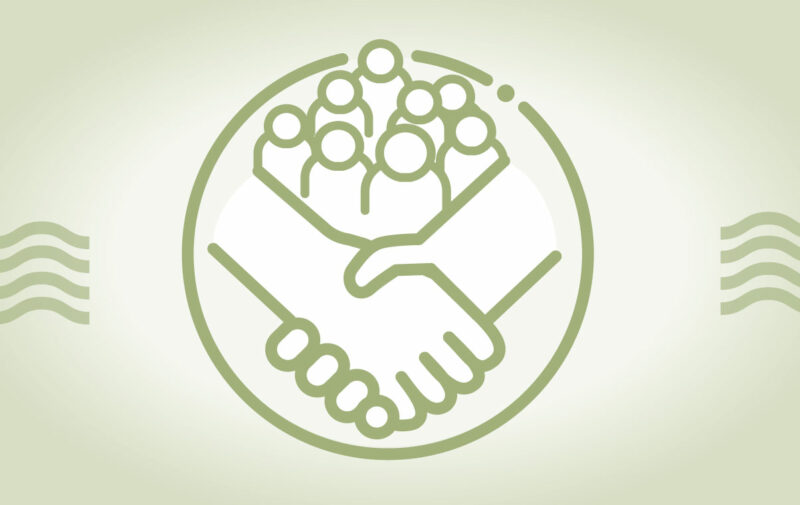
Community Impact Grant
Going to the People: Community Health Workers Advancing Hmong and Hispanic Health Equity through Case Management in Community-Based Settings
Year Awarded:
2024
This initiative advances health equity for Hmong and Hispanic communities in central Wisconsin by providing bilingual case management through trusted community health workers (CHWs). CHWs will connect individuals to essential health and social services, addressing barriers like language, transportation and access.

Community Impact Grant
Crisis Intervention to Facilitate Successful Transition to Adulthood
Year Awarded:
2025
The goal of this project is to provide crisis intervention services for young adults participating in Workforce Resource Inc.’s Independent Living for Youth Aging Out of Foster Care and Anti-Human Trafficking programs by utilizing crisis navigators. In doing so, the project aims to reduce the negative effects of stress caused by crisis, enhance resilience and promote recovery, and achieve a sense of economic stability and security for program participants. Tamara Kincaid, UW-River Falls, serves as the academic partner.

Community Impact Grant
Community Powered Tribal Health Initiative
Year Awarded:
2025
The initiative’s goal is to address the disproportionate health challenges faced by tribal communities by increasing their communities’ capacity to identify, design, implement and evaluate culturally relevant solutions to mental health challenges. The project is adapting the existing Community Powered community resilience training program for use in tribal contexts to address health challenges including depression, isolation and drug and alcohol abuse. Arijit Sen, PhD, UW-Milwaukee, serves as the academic partner.

Community Impact Grant
Investigating Strategies to Remove Barriers that Exclude Indigenous Populations from Early Diagnosis and Intervention of Autism Spectrum
Year Awarded:
2025
This project aims to address equitable access to programs, resources and services for Indigenous children with autism. Conducted with collaborators at the UW Waisman Center, the project’s goal is to implement evidence-based strategies to promote early detection, intervention, and improved autonomy of underserved Native American children with autism and ensure equal development. Liliana Wagner, PhD, UW–Madison, LEND Program, Waisman Center, serves as the academic partner.

Community Impact Grant
Enhancing Access to Culturally Appropriate Mental Health Services for Immigrants and Refugees
Year Awarded:
2025
This initiative will introduce a novel peer-led, evidence-based approach to improve access to culturally appropriate mental health services for immigrant and refugee communities in South Central Wisconsin. By addressing the significant barriers these populations face, the program aims to fill existing service gaps through a comprehensive, multifaceted strategy. Matthew Wolfgram, PhD, UW–Madison, College of Letters & Science, serves as the academic partner.

Community Impact Grant
Restoring Health and Health Equity in Central Wisconsin Housing
Year Awarded:
2025
This initiative addresses the impact of safe, adequate housing on health and health equity and seeks to improve health outcomes in Marquette, Portage, Waupaca, Waushara and Wood counties by improving the timeliness and accessibility of housing rehabilitation services provided to low-to-moderate income households through its Housing Repairs program. CAP will test select interventions to determine their impact on health outcomes and engage other community action agencies to inform and share best practices. Katie Livernash, Extension Portage County, UW–Madison, serves as the academic partner.

Community Impact Grant
From Seeds to Table: Indigenous Culinary Partnership and Education
Year Awarded:
2025
The From Seeds to Table project aims to address food insecurity and health disparities in the Oneida community by reclaiming traditional Haudenosaunee culinary practices. This initiative will provide nutritious, culturally appropriate meals, offer educational courses on traditional meal preparation, and build a sustainable framework for food sovereignty, while addressing both immediate nutritional needs and long-term health and cultural sustainability.

Community Impact Grant
The Positive Path through Madison’s Darbo Neighborhood
Year Awarded:
2024
Mentoring Positive, a youth empowerment organization in Madison, is strengthening the health of its neighborhood and community. Through their WPP Community Impact Grant, Mentoring Positives will expand and evaluate The Positive Path, their combined youth programming initiatives, open to K-12 students in Madison’s Darbo neighborhood. Through this programming, Mentoring Positives promotes social cohesion, youth health and well-being by focusing on building trusting relationships, introducing social-emotional learning and developing life skills through mentoring, athletics and social entrepreneurship.

Community Impact Grant
Empowering Families and Individuals Experiencing Housing Insecurity to Succeed through Tenancy Support Peer Mentorship
Year Awarded:
2025
Home for Good will promote housing stability across Eau Claire county through the expansion of its tenancy support services and tenancy support peer mentors. Mentors with lived experience of housing insecurity will work with participants toward health, financial and permanent housing goals to build stability and independence.

Community Impact Grant
Advancing the Help Me Grow Model with Family-engaged Developmental Modeling
Year Awarded:
2025
This project’s goal is to improve early childhood health, development and family-level outcomes by expanding the national evidence-based Help Me Grow (HMG) model – a family-engaged developmental screening system of community resources – within underserved rural and urban Wisconsin communities. The project will support 9000 families with young children prenatal-five who might experience health disparities and inequities.